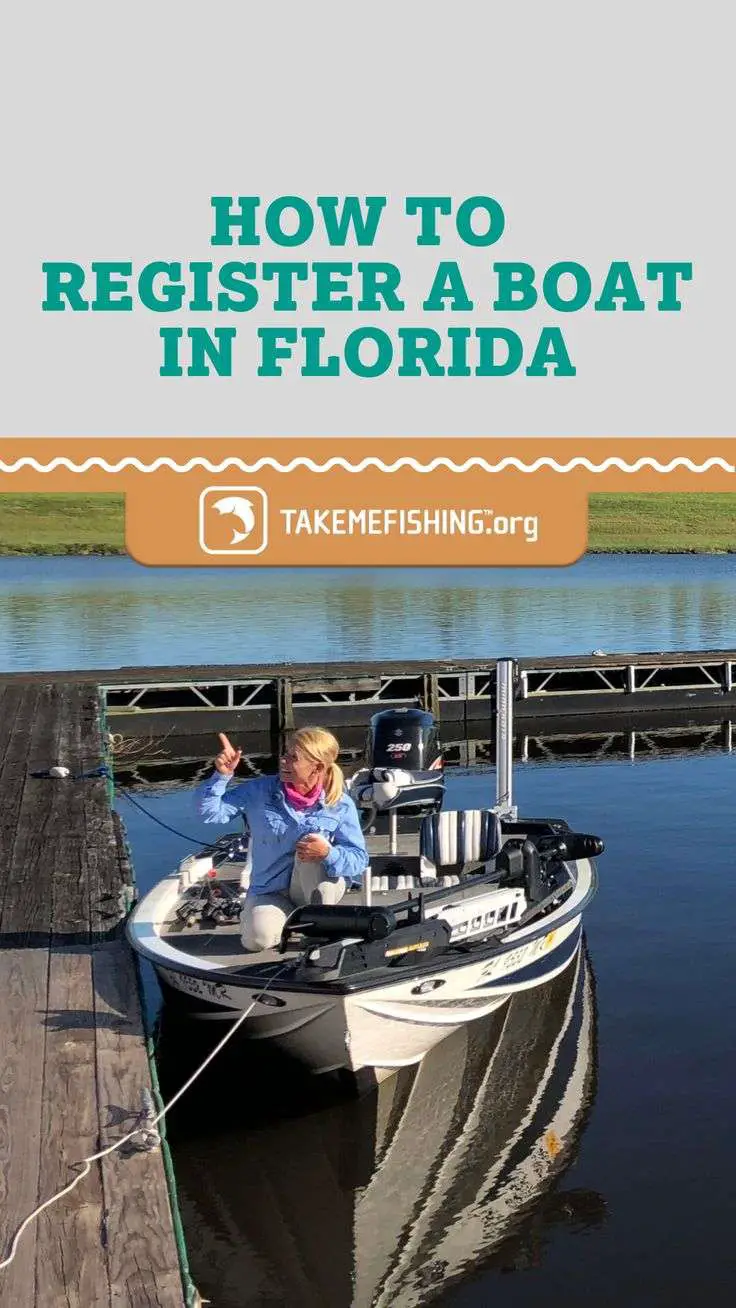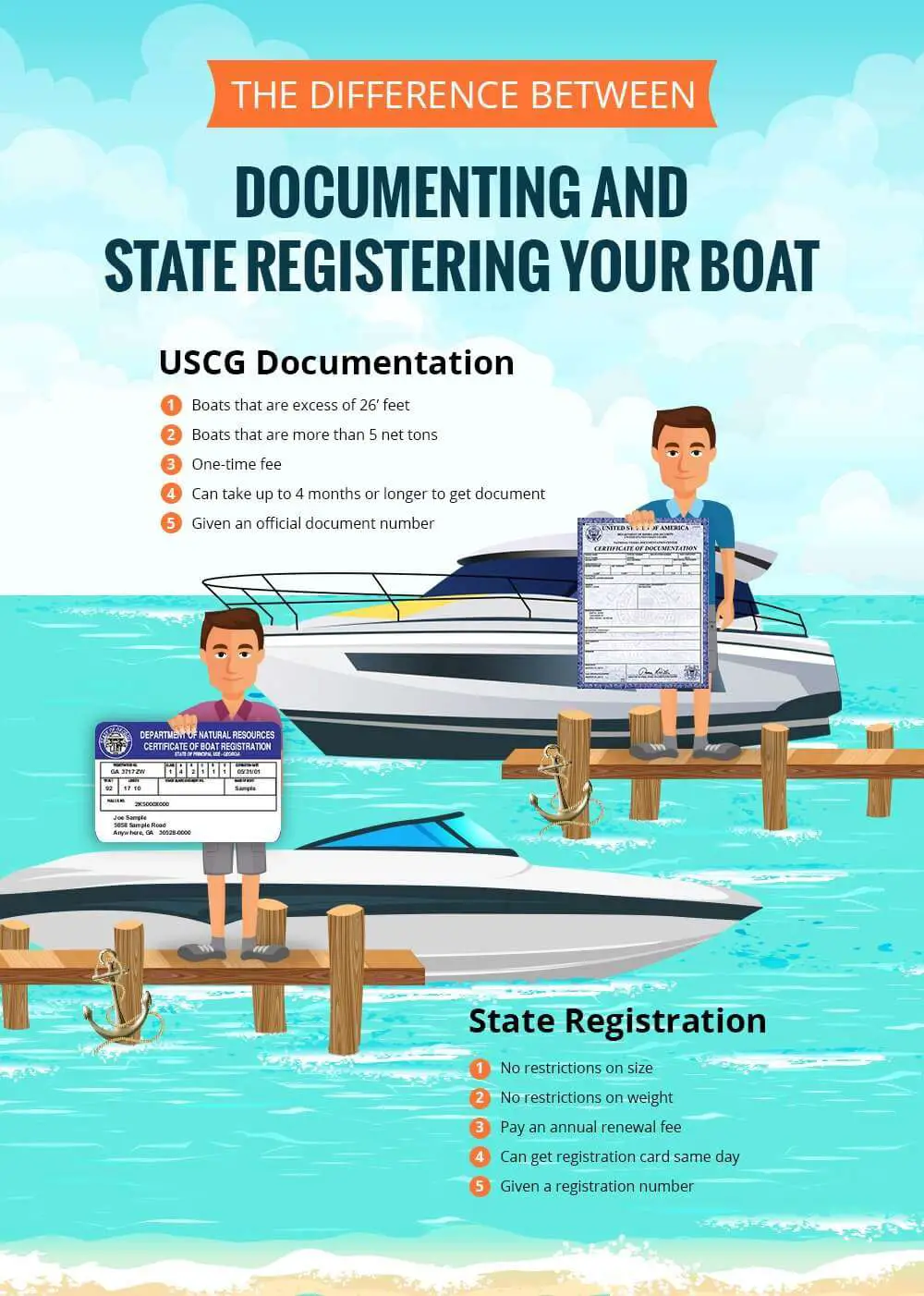Yacht Registration Vs Documentation
Should you document your yacht with the federal government, or does it make more sense to simply register the vessel in your state? Maybe both are in order? Each state has different requirements for registration, and they all have different agencies responsible for management. So youll need to figure out the ins and outs of registering in your own state. And if you find there are more outs than ins, it might be time to consider documenting with the federal government.
Documenting vessels started as a way for the government to manage commercial shipping. Today, the U.S. Coast Guard is in charge of documentation and there are multiple types of vessels that can be documentedincluding recreational vessels. Any documented vessel may be used for recreational purposes, regardless of its endorsement, but a vessel documented with a recreational endorsement only may be used for that purpose. If you want to run a commercial fishing charter business on your boat, for example, youll have to document your vessel with a fishing designation even if you also use it for pleasure.
Any vessel of five net tons or more can be documented. Net tonnage is a measure of a vessels cargo carrying volume. It should not be confused with the vessels weight, which may also be expressed in tons. Most vessels more than 25 feet in length will have a cargo volume of five net tons or more.
What Are The Uscg Sea Time Requirements For A Master 25/50/100
For a 25, 50, or 100-ton Master Near Coastal captains license, 720 days of sea time are required with 360 outside the boundary line. You must be able to document 90 of those days within the last three years.
If you do not meet these requirements, you can get a Master Inland license with 360 days sea time, 90 within the last three years.
Complete Guide To Uscg Documentation Standards And Requirements For Boats
Vessel documentation has a long history in the United States with some of the first requirements being outlined by the 11th Act of the First Congress in 1790. This type of regulation serves as the known standard to prove nationality for international purposes, regulate trade among coastal territories and fishing grounds, and clarify ownership of vessels in the U.S. The United States Coast Guard manages the federal documentation of vessels through the National Vessel Documentation Center .
Today there are approximately 225,000 USCG documented vessels that are current and valid. The requirements for federal documentation of vessels are outlined in the Code of Federal Regulations in section 46 CFR 67. There is also a complementary section that specifies the requirements for state registration of vessels. Vessel owners seeking documentation at the federal level must submit an application to the NVDC, and there are a number of considerations to keep in mind and ensure your boat is fully compliant at both the state and federal levels. This guide will help to clarify the specific requirements for individual vessels including differences in size, intended use, and location.
In todays guide well discuss:
You May Like: What’s My Boat Worth
Registration And Placard Requirements From The Uscg
There are unique requirements for placard placement for state registration and federal documentation that must be kept in mind. Boats that are registered in their state must have the state-issued Certificate of Number painted or permanently attached, in plain vertical block letters, to each side of the forward half of the vessel. The numbers must be at least 3 inches in height, readable from left to right, and in a color that contrasts with the underlying background. Spaces or hyphens in between letters must be of equal width to a letter except for the letter I or the number 1.
Documented recreational vessels must have a clearly readable display with the vessel name and hailing port in one location on the hull . Letters must not be less than four inches in height. An additional requirement for commercial vessels is to also include the vessel name on both sides of the bow. Recreational vessels may also do this, but it is not required. One final requirement for documented vessels is to affix the official vessel number in block-type Arabic numerals of at least 3 inches in height to some interior integral structure. The number must have the designation NO. before the number and be permanently affixed, meaning that removal would be obvious.
The Us Coast Guard And Documenting Boats

You have worked hard all your life, and are now ready to invest money in one of your big dreams. Buying a luxury vessel has been something that you have been imagining for a while, and now you are able to put down the money required. If you have been successful in buying a boat or obtaining a mortgage for a vessel, then the next step is to consider visiting the US coast guard boats registration portal, and obtaining a Certificate Of Documentation for your vessel. Getting the right documentation set up at the start can be vital if you want to sail your boat successfully.
Also Check: Best Bass Boat Cranking Battery
State Title Or Documented Vessel
To quote Mel Brooks “It is good to be the king.”
Every state wants to tax vessels which ply its waters for an extended period of time. Consequently, they require that vessels which fit within certain categories must be registered with the state. What this really means is that the king wants his money in the form of taxes. In addition to being registered with the state a vessel may be “documented”.
A recreational vessel which is documented has a certificate of admeasurement stating that the vessel is of at least 5 net tons, U.S. citizens own at least 51% of the vessel, it has a marking certificate , and the owners have filed an application for a Document with the Coast Guard. Under federal law, a documented vessel may not have a state certificate of title, but can be registered in the state in which it is primarily used.
Why is it important whether the vessel is documented or not? Foremost because USCG documentation is necessary to secure a special financial vehicle for maritime lenders, called the Preferred Ships Mortgage. Preferred Ships Mortgages give maritime lenders greater security in the vessel they lend money to purchase, making it a safer investment and lowering the interest rate on the loan.
Todd Lochner is an admiralty lawyer based out of Annapolis, Maryland.
Todd Lochner practices admiralty law in Annapolis, Maryland. Visit www.boatinglaw.com.
How To Simplify The Vessel Registration Process
The Canadian vessel registration process can appear to be a daunting one at first. There is jargon to learn, documents to wade through, and government sites to navigate. Fortunately managing your vessel documentation can be quick, easy, and very straightforward. At the National Vessel Registry Center Corp, we have made it our mission to make
You May Like: Cleaning Mold Off Boat Seats
Benefits Of Coast Guard Documentation
Cruising Foreign Waters
Customs officials universally recognize a US Coast Guard Certificate of Documentation as proof of ownership and authentication of the boats origin. If you travel to foreign waters, your Certificate of Documentation immediately provides you with the protection and the status that comes from the US Government. This also facilitates a smooth entry and clearance at foreign ports.
Title Assurance
The US Coast Guard holds strict requirements to ensure each documented vessel will have a clear and irrefutable history of ownership. A record of all transactions, including bills of sale, mortgages, and satisfactions, are kept by the National Vessel Documentation Center as the chain of title. Establishing this chain of title enables owners of documented vessels to expedite transfers of ownership and refinancing. Documentation of a vessel also becomes helpful when tracking stolen vessels across state lines with the federally documented record of ownership
Each boat documented with the US Coast Guard is given an official number which remains the same throughout the life of the boat. The owner is required to place the number on the interior structure of the hull. For vanitys sake, marking the interior of the hull provides a more desirable appearance. For practicality purposes, it is simple to have one number assigned for the duration of ownership that is accessible while aboard the boat.
Financing
What Is A Documented Vessel
A documented vessel is one that has been federally registered through an application process with the U.S. Coast Guard, via either the National Vessel Documentation Center or an authorized third party. Typically vessels over 26 feet in length may obtain a Certificate of Documentation, while vessels over 5 tons are required to have one.
Read Also: Does Banana Boat Deep Tanning Dry Oil Work
How To Write A Bill Of Sale For A Boat
Learn how to sell your boat properly by creating a bill of sale and using Adobe Sign to add signatures online.
Selling your boat isnt as simple as just shaking someones hand and depositing a check. Write a bill of sale for your boat to make the exchange official and protect yourself from potential legal issues.
Finding Your Vessel With Uscg Boat Names Searches
You have your eye on a new vessel that you want to buy. Just like with any other big investment, such as a house or a car, you will need to make sure that you are actually buying what is being offered and that it is the best vessel for you. You cant send your friendly mechanic over to check out the engine of the vessel, but you could do more research on the vessel itself, including previous ownership, by conducting a search through the USCG boat names registry. This is a collection of vessels that have been documented by the USCG, and will provide you with a lot of information about the boat you are thinking of buying.
Don’t Miss: Remove Mold From Vinyl Seats
Prerequisites For Operator Uninspected Passenger Vessel License
You must meet all of the prerequisites in this paragraph to receive an OUPV- Operator of Uninspected Passenger Vessels License
- Must be 18 years old
- Must be able to document 360 days of experience on a vessel
- Must have 90 of these days within the last 3 years
- 90 of the 360 days must be on the ocean or near coastal waters, or the license will be limited to inland waters only
- License will be limited to uninspected vessels of less than 100 gross tons
- If you are not a U.S. Citizen, you can receive this license but it will be restricted to undocumented vessels.
Personal Hygiene And Safety 3

3 What is paint? 5Resins Epoxies Polyurethanes Other types of resin Pigments and extenders Solvents, diluents and thinners Additives Paint manufacture
Existing paint schemes Preparation Glassfibre Steel Aluminium alloy Galvanised, zinc sprayedand aluminium sprayed steel Timber Ferro-cement Stainless steel Cast iron keels Lead keels Tanksand bilges Water and fuel tanks Applying paintin tanks and yacht interiors Cleaning and degreasing Silicone contamination
Recommended Reading: How Much Are Boat Club Memberships
The Basics Of Uscg Documentation Standards
Documentation with the USCG serves the purpose of proving U.S. citizenship, eligibility for endorsements, and ownership of the vessel. The endorsements, granted by the USCG as part of a Certificate of Documentation, are most commonly listed as fishery, coastwise, registry, and recreation. A vessel that is endorsed for recreation may only be used for that purpose, while all other endorsements may also be used for recreation in addition to their other intended use. A registry endorsement is typically used for international trade purposes.
USCG documentation is required for all vessels that measure at least 5 net tons, are owned entirely by a U.S. citizen, and are used in coastwise trade or fishing activities on the navigable waters of the U.S or in the Exclusive Economic Zone which is the area of ocean surrounding the coast up to approximately 200 miles offshore. Towboats and dredges operating in these areas must also be documented. Exemptions include vessels that are not operated on the navigable waters or EEZ fisheries, including certain non-self-propelled vessels used in coastwise trade within a harbor, on rivers or lakes , or in internal waters or canals of any state.
Benefits Of Documenting A Boat
The main benefit of documenting a boat with the USCG NVDC is for boats that travel into international waters. A federally documented boat that enters foreign waters, carries some protections as being under the United States Flag.
This document by the federal government also aids in gaining clearance into that country also.
All commercial vessels of 5 net tons or more must be documented and carry specific extensions to there use. This grants them use for things like fishing, dredging, etc. Also, a federally documented vessel does does not carry a state title.
Insuring a documented vessel generally provides for better insurance rates. Check with your insurance agent.
You may have the availability of preferred mortgages on documented vessels. If your boat is financed and U.S. Coast Guard documented, a Preferred Ships Mortgage will be recorded and filed with the U.S. Coast Guard.
Not only is it easier to get a loan on a documented boat, but The bank is recording a First Preferred Ships Mortgage. This allows for the tracking of liens, mortgages, satisfaction of liens. When youve paid off the mortgage on your boat. The lender will supply the National Vessel Documentation Center a document showing a Satisfaction of Mortgage.
This assures any potential boat owner, that they are purchasing a boat free an
d clear of any encumbrances. So it is a bit like recording a mortgage against a house.
Recommended Reading: Missouri Boat Title
What Are The Benefits Of Documenting A Vessel
Vessel documentation is a national form of registration, which means that you are registering your vessel with the federal government. Documentation provides evidence of nationality for your vessel, used mainly for international purposes. Vessel documentation simpli?es commerce between states and admits vessels to certain restricted trades, such as ?sheries and coastwise trade.
Although vessel documentation started as a way for the federal government to manage commercial shipping and collect taxes, the U.S. Coast Guard is currently in charge of vessel documentation.
The Benefits Of Documenting A Vessel
The benefits of documenting a vessel are many, although it may seem like an arduous task. It can be simplified with the help of vessel documentation services. If you are a new owner of a boat, you may be wondering if you have to document your vessel with the federal government. But first, read on to find out if you absolutely must document your new boat.
Recommended Reading: Aaa Trailer Coverage
Us Coast Guard License / Credential Requirements
The Captains License is required to operate a commercial vessel or to take paying passengers out on your vessel. Understanding the Captains License Requirements should be understood prior to taking a captains license course.
These general prerequisites should be reviewed before applying for any U.S. Coast Guard license/credential. This is recommended so you dont spend your time and money pursuing a license that you dont qualify for. For full consulting and credentialing services, to get more info. For credential packets and USCG forms
But please, dont rule yourself out on your own if you have any questions at all about whether you qualify for a license. Call us at 619-263-1638 and one of our friendly student services advisors will answer your questions.
What To Have Onboard Your Boat
Safe and fun boating all comes down to being prepared. If youre new to the game and ready to join the 87 million other recreational boaters in the United States, you may have a few questions about how to stock your boat before you head out for the first time. And while youll learn very quickly through your experience what it takes to be prepared, there are some things you should do before your first adventure to make sure you have a safe and enjoyable time.
Here is a look at the essentials to have on your boat.
Read Also: Who Makes The Best Jon Boat
Two Component Polyurethanes Should Not Be Applied At Less Than
Most paints will have a consistency like treacle at less than 10 °C, and can be very difficult to apply. For best results, warm the paint to 20° C or slightly above before use. 0 °C/32 °F – Freezing Point: only those paints specialy formulated for low temperature use should be applied at less than 5 °C.
Prerequisites For Captains License: Master Near Coastal Of Inspected Passenger Vessels Up To 100 Gross Ton

You must meet all of the prerequisites in this paragraph to receive a Master Near Coastal License for Inspected Passenger Vessels of up to 100 Gross Tons:
- Must be 19 Years old
- Must be able to document 720 days of experience on a vessel 360 of these days must have been on ocean or near coastal waters
- Must have 90 days within the last 3 years
The tonnage of the license is determined by your experience. For a 100 gross ton license, 180 days must be on vessels of 51 gross tons or above OR 360 days must be on vessels of 34 gross tons or above. For a 50 gross ton license, 180 days must be on a vessel of 26 gross tons.
If you plan on operating an Inspected sailing vessel you must have a sailing endorsement, the required seatime for this is 360 days of sail or sail auxiliary time (these may be part of the 360 days and may be prior to license issuance.
For full information on credential requirements, to access the U.S. National Maritime Centers website.
Don’t Miss: How To Register My Boat In Florida
